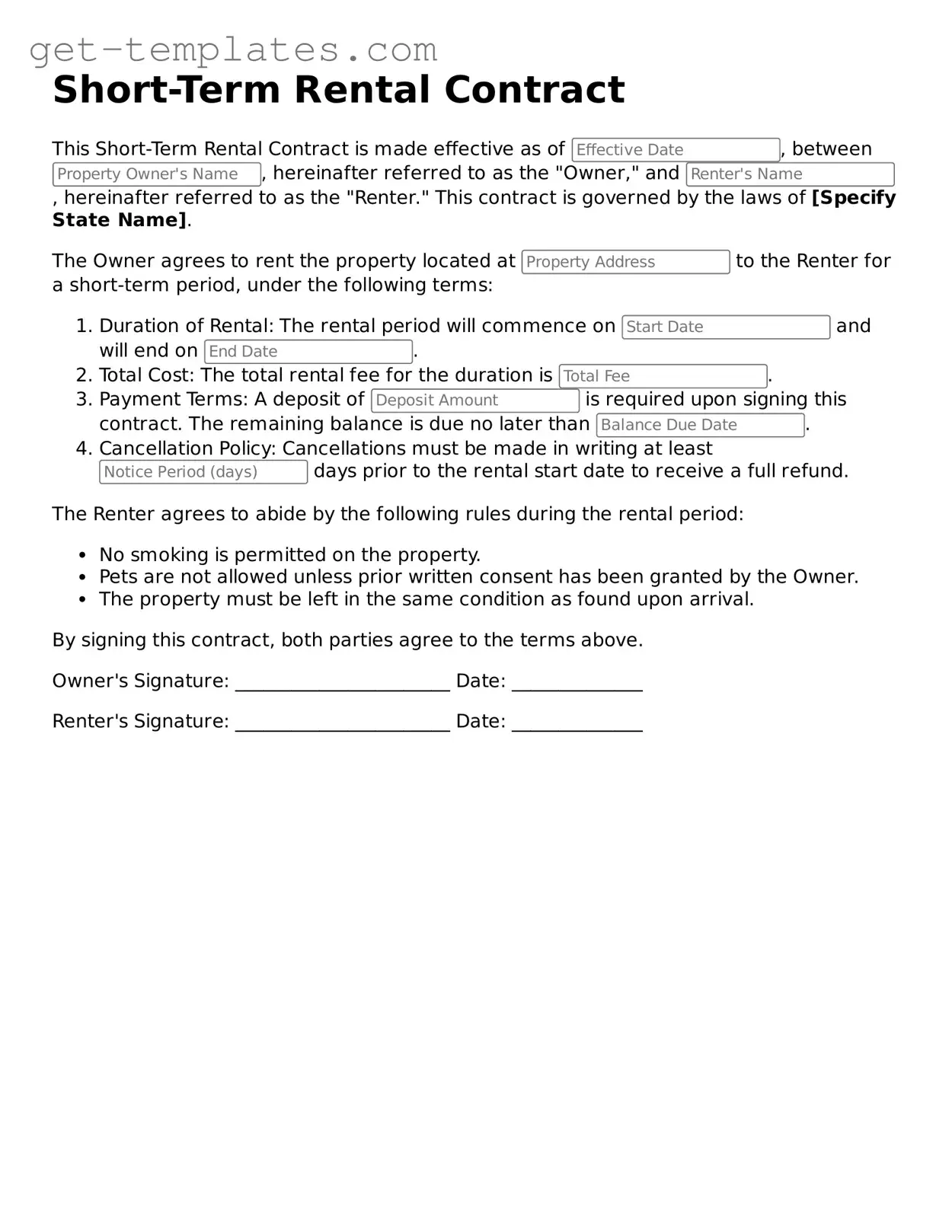What is a Short-Term Rental Contract?
A Short-Term Rental Contract is a legal agreement between a property owner and a guest. It outlines the terms and conditions for renting a property for a short period, typically less than 30 days. This contract helps protect both parties by clearly defining expectations and responsibilities.
Why do I need a Short-Term Rental Contract?
This contract is essential for several reasons:
-
It establishes the rights and obligations of both the property owner and the guest.
-
It provides a clear framework for resolving disputes.
-
It helps ensure compliance with local laws and regulations regarding short-term rentals.
Important details to include are:
-
The names and contact information of both parties.
-
The rental property address.
-
The rental period, including check-in and check-out dates.
-
The total rental price and payment terms.
-
Security deposit information.
-
House rules and any additional fees.
How is the rental price determined?
The rental price can vary based on several factors, including property location, size, amenities, and seasonal demand. Property owners typically research similar listings to set a competitive price. Guests should clarify the total cost, including any additional fees, before signing the contract.
What happens if I need to cancel my reservation?
Cancellation policies should be clearly outlined in the contract. Typically, they specify deadlines for cancellations and any associated fees. It's important for both parties to understand these terms to avoid misunderstandings.
Are there any rules I should follow during my stay?
Yes, house rules are usually included in the contract. These rules may cover noise levels, smoking policies, pet restrictions, and other guidelines to ensure a pleasant experience for everyone. Guests should read and follow these rules carefully.
What if there are damages to the property during my stay?
If damages occur, the property owner may retain part or all of the security deposit to cover repair costs. The contract should outline the process for reporting damages and how costs will be assessed. Open communication is key to resolving these issues fairly.
Can I make changes to the contract after signing?
Changes to the contract typically require mutual agreement from both parties. Any amendments should be documented in writing and signed by both the property owner and the guest. This ensures clarity and protects everyone involved.
What should I do if I have a dispute with the property owner?
In the event of a dispute, refer to the contract for guidance on resolution procedures. Many contracts include a clause for mediation or arbitration. If issues cannot be resolved amicably, seeking legal advice may be necessary.

